
Saint Paul Selected to Host Smithsonian Exhibit
Saint Paul School of Theology has been selected to host the traveling exhibit Exploring Human Origins: What Does It Mean to Be Human? through a national competition offered by the Smithsonian National Museum of Natural History (NMNH) and the American Library Association (ALA).
“Saint Paul is very excited to be one of just six theological seminaries in the country to be selected to host this unique and fascinating exhibit,” said Seminary Exhibit Coordinator Dr. Nancy Howell. “No one will want to miss seeing the seminary transformed into a science museum, and we have an impressive line-up of programs planned, with offerings for children and adults. We hope everyone will join us in a conversation about what it means to be human.”
In addition, scientists and other experts from the NMNH Human Origins Program will visit the seminary’s Kansas Campus in Leawood, Kansas, to host events for the community, including a clergy program, educator workshop, community conversation, and more. Through panels, interactive kiosks, hands-on displays, and videos, Exploring Human Origins: What Does It Mean to Be Human? invites viewers of all ages to learn about the milestones in the evolutionary journey of becoming human and encourages a public conversation that opens multiple perspectives on what it means to be human — one that embraces the ideas and beliefs of non-scientists and fosters a greater appreciation of the complexity of the science of human evolution. Seminarians, alums, clergy, schools, churches, and the community are encouraged to visit and engage in conversations that matter scientifically and theologically. This exhibit is free and open to the public for viewing February – May 2025. Later this fall, additional details will be announced regarding visiting hours and registration for special event programs. To have news and updates delivered to your inbox, we invite you to subscribe to Saint Paul emails at https://app.donorview.com/Pq5ln. Are you interested in volunteering as an exhibit docent? If so, please contact Dr. Nancy Howell () for more information.
Exhibit Hours
The exhibit will be closed on Easter Sunday (April 20).
February 4 - May 14, 2025
Mondays 9:00 AM - 6:00 PM
Tuesdays 9:00 AM - 6:00 PM
Wednesdays 9:00 AM - 6:00 PM
Thursdays 9:00 AM - 6:00 PM
Fridays 1:00 PM - 6:00 PM
Saturdays 9:00 AM - 4:00 PM
Sundays 12:00 PM - 2:00 PM
If you would like to bring in a group to tour the exhibit or would like to schedule a visit outside normal exhibit hours, please contact Dr. Nancy Howell () to schedule your visit.
Location: 13720 Roe Ave., Bldg. C, Leawood, KS 66224
Parking is available outside of Bldg. C in lots C1, C2, or C3. Please use East Entrance 1 or the South Entrance to enter the building and follow the signs to the exhibit.
Need hotel accommodations? Many area hotels offer guests of Saint Paul a discounted rate. Visit our Accommodations page for details.
Exhibit Programs & Events
February 27, 2025
7:00 PM - 8:30 PM
Oklahoma Campus or Online
Four faculty from Oklahoma City University will join us on their campus and online for a panel discussion. Those professors are Lisa Wolfe (Hebrew Bible), Yi Shao (Psychology), Stephen Prilliman (Chemistry), and Amy Osatinski (Theatre). The panel will explain the relevance and importance of human origins and evolution in their fields of study and speak to the meaning of science in their religious beliefs.
March 24, 2025
3:00 PM - 5:30 PM
Kansas Campus or Online
Jim Miller, Co-Chair of the Broader Social Impacts Committee of the Hall of Human Origins
Clergy are invited to attend this event online or in person. The workshop allows time for questions and conversation about human origins and how clergy can address the topic in their diverse ministries.
March 24, 2025
6:30 PM - 8:00 PM
Kansas Campus or Online
Briana Pobiner, Smithsonian paleoanthropologist at the Smithsonian’s National Museum of Natural History
Available in person and online, this workshop is for religious educators in Christian ministries (and perhaps other religious contexts). The workshop equips religious educators to enter the public conversation or introduce the story of human origins in their ministry settings.
March 25, 2025
11:00 AM - 12:00 PM
On Campus or Online
Rick Potts, Smithsonian curator and paleoanthropologist at the Smithsonian’s National Museum of Natural History; Peter Buck Chair in Human Origins
Chapel at Saint Paul is always open for in-person or online worship. On this occasion, the curator and anthropologist from the Hall of Human Origins will speak to the ways his scientific work has meaning in his Christian life.
March 25, 2025
7:00 PM - 9:00 PM
Kansas Campus or Online
Rick Potts
Available online or in-person, Smithsonian curator Dr. Rick Potts introduces the themes of the exhibit located on the Saint Paul campus. After posing the question, "What does it mean to be human?", Dr. Potts offers examples of recent research discoveries where public audiences find meaning in the science of human origins. The lecture is open to the public.
March 26, 2025
4:30 PM - 7:00 PM
Kansas Campus or Online
Brianna Pobiner and Lee Meadows, who is a science educator from Birmingham, Alabama, and the author of The Missing Link: An Inquiry Based Approach for Teaching Evolution to All Students and co-author of Making Sense of Science and Religion: Strategies for the Classroom and Beyond.
The workshop presentation (online and in-person) is based on teaching modules designed and tested by the Smithsonian staff and Broader Social Impact Committee members in school classroom settings with school teachers as collaborators. Due to the contentious public debates about human origins, the programs and tools provided can be of assistance with effective teaching that is non-threatening.
An optional boxed dinner is available for advanced purchase at the time of registration.
March 27, 2025
6:30 PM - 8:00 PM
Kansas Campus or Online
Jim Miller
In this concluding conversation (in-person or online), we will join together for a conversation about our experience of the tour, questions left unanswered, and further information needed. on-campus visitors will have an opportunity to view the exhibit again and then participate in the discussion.
Human Origins Experts
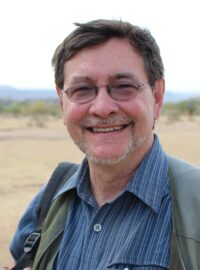
Dr. Rick Potts
Rick Potts, Director of the Smithsonian’s Human Origins Program, Dr. Rick Potts is a paleoanthropologist at the National Museum of Natural History, where he also holds the Peter Buck Chair in Human Origins. Since joining the Smithsonian in 1985, Rick has dedicated his research to piecing together the record of Earth’s environmental change and human adaptation. His ideas on how human evolution responded to environmental instability have stimulated wide attention and new research in several scientific fields.
Bridging across many research disciplines, Rick’s field projects are located in the East African Rift and southern and northern China. His latest work in the Rift Valley of Kenya has gained international attention as the first project to obtain a long drill core from an early human site in Africa, which will provide a detailed climate record spanning the past 500,000 years. Rick received his Ph.D. in biological anthropology from Harvard University in 1982, after which he taught anthropology at Yale University and served as curator of physical anthropology at the Yale Peabody Museum. Rick is curator of both The David H. Koch Hall of Human Origins at the Smithsonian’s National Museum of Natural History and a new, accompanying traveling exhibition called “Exploring Human Origins: What Does It Mean to Be Human?” He is also the author of the companion book, What Does It Mean to Be Human?
Lee Meadows, Ph.D
Lee Meadows, Ph.D., is a science educator based in Birmingham, Alabama. He has written and spoken across his career on the teaching of evolution in the Deep South and is the author of The Missing Link: An Inquiry Based Approach for Teaching Evolution to All Students and co-author of Making Sense of Science and Religion: Strategies for the Classroom and Beyond. A teacher at heart, Lee has taught high school chemistry, physics, and physical science; college chemistry; and many teacher education courses, especially science teaching methods. He guided the launch of Alabama STEM Council as its first Executive Director, focusing the work on building the STEM education system Alabama needs for a thriving workforce. Before that he worked as professor in the School of Education at the University of Alabama at Birmingham, guiding science teachers to improve their practice especially with better skills for inquiry and implementing science and engineering practices. Meadows is a member of the Broader Social Impacts Committee of the Program on Human Origins of the Smithsonian’s National Museum of Natural History.
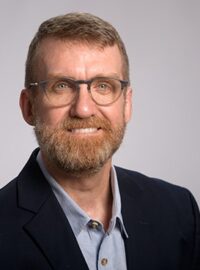
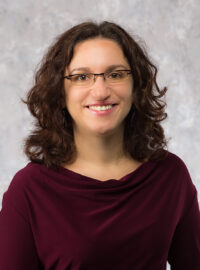
Briana Pobiner
Briana Pobiner is a paleoanthropologist whose zooarchaeological and taphonomic research centers on the evolution of human diet (with a focus on meat-eating), but has included topics as diverse as human cannibalism and chimpanzee carnivory. Since joining the Smithsonian in 2005 to help put together the Hall of Human Origins, in addition to continuing her active field, laboratory, and experimental research programs, she leads the Human Origins Program’s education and outreach efforts, including managing the Human Origins Program's public programs, website content, social media, and exhibition volunteer training. Briana has more recently developed an additional research program in evolution education and science communication. She is also an Associate Research Professor of Anthropology in the Center for the Advanced Study of Human Paleobiology at the George Washington University.
Dr. Jim Miller
Jim Miller is an honorably retired ordained minister in the Presbyterian Church (USA) with an AB in American Studies for the University of Maryland, an MDiv from Union Presbyterian Seminary, and a Ph.D. from Marquette University. Immediately following seminary, he served for five years on the staff of the Department of Engineering Mechanics, North Carolina State University. He has served as an ecumenical campus minister at Michigan Technological University (1975-1981) and the University of Pittsburgh, Carnegie Mellon University, and Chatham College (1984-1996). For nearly ten years he was the Senior Program Associate for the Program of Dialogue on Science, Ethics, and Religion of the American Association for the Advancement of Science (AAAS). He was the founding Secretary/Treasurer and four-term past President of the Presbyterian Association on Science, Technology and the Christian Faith. Since 2008 Jim has served as co-chair of the Broader Social Impacts Committee of the Program on Human Origins of the Smithsonian’s National Museum of Natural History. He was elected a Fellow of the American Association for the Advancement of Science in 2020.
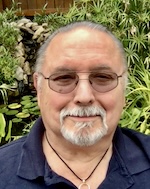
Exploring Human Origins: Promoting a National Conversation on Human Evolution is administered by ALA’s Public Programs Office in collaboration with the Smithsonian National Museum of Natural History’s (NMNH) Human Origins Program.
During events, photographers and videographers will take photos, screenshots, and videos that may be used in future Saint Paul School of Theology marketing materials and/or broadcast via live-stream or recording. Virtual events may be recorded and made available online and on social media to the public. By attending this event, you agree to be photographed and/or filmed and give permission to use your likeness in promotional, virtual, and/or marketing materials. You hereby give Saint Paul School of Theology (SPST) the right to take pictures and/or recordings of you and grant the perpetual right to use your likeness, image, or photo, without compensation or approval, in any medium, including social media. You waive and release from any liability SPST, its affiliates, and its students, board members, employees, donors, and each and all persons involved.
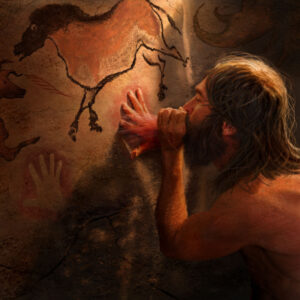
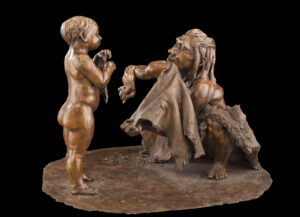
Credit: Smithsonian's Human Origins Program
